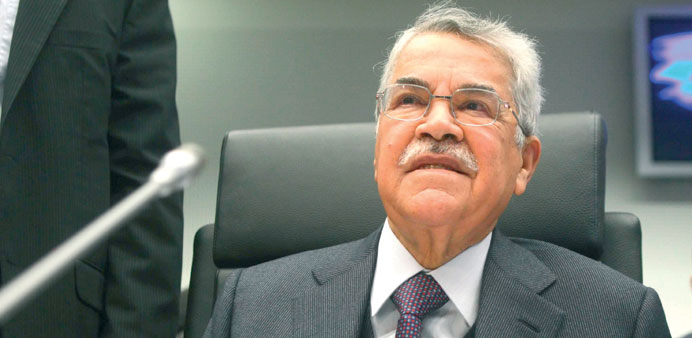Reuters/Dubai
Opec heavyweight Saudi Arabia is expected to keep oil output steady throughout the second quarter as more high pace demand in Asia, its biggest oil export market, has yet to materialise.
At the start of this month, the world’s top exporter was poised to raise oil supply to meet higher requirements in Asia. With Europe mired in debt and the US using more of its own oil, Asia is the primary target for producers in the Gulf Co-operation Council (GCC).
But three weeks on and the outlook for growth in top energy consumer China and elsewhere looks decidedly uncertain, Europe’s recession has deepened and Brent crude has lost 10% of its value to trade below $100 a barrel.
Sources familiar with Saudi oil policy said demand for crude from outside the kingdom was expected to remain flat through June, although it could burn more crude domestically to cover an increase in power generation.
“Loadings of Saudi crude for April and May look fairly flat versus March, so we expect little, if any, change in Saudi supply through May,” said a major buyer of Saudi crude.
Neighbouring Gulf producer the UAE was also keeping production steady. “It will produce roughly the same in the second quarter,” UAE Opec governor Ali al-Yabhouni told reporters yesterday.
Saudi Arabia, Opec’s leading producer and holder of the world’s only significant spare capacity, cut output by around 700,000 bpd over the last two months of 2012, helping drive an oil rally from early December to February.
Saudi production so far this year has stabilised at around 9.1mn bpd. Riyadh has long insisted that it adjusts oil supply to accommodate its customers and not to drive the price. Saudi Oil Minister Ali al-Naimi said last month that crude around $100 was “reasonable” for consumers and producers alike.
But Gulf Opec producers are likely to take a different view of an $85-$90 Brent price, which delegates say could prompt discussion of a cut in Opec’s official 30mn bpd supply target.
The price slide has prompted price hawks Iran and Venezuela to suggest the idea of an emergency meeting of the Organisation of the Petroleum Exporting Countries before the next scheduled gathering on May 31.
The idea got little traction from the group’s members across the Gulf. For now, Gulf Arab Opec producers, led by Saudi Arabia, say they are likely to keep production steady throughout this year.
The 12-member group is pumping roughly 30.5mn bpd.
“We believe that the situation will stabilise,” Qatar’s Minister of Energy and Industry HE Dr Mohamed Saleh al-Sada told reporters on Sunday. “Usually the second quarter of every year we see less demand, but in the third quarter we see stronger demand and this is what we expect. The (current) situation in the market does not call for any panic.”

